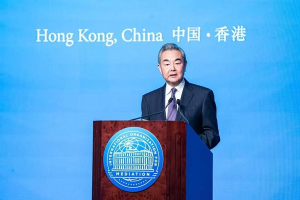
As an ancient nation’s capital, Addis Ababa is part and parcel of history, culture, continental diplomacy, and modernity steering urbanization in Africa. It is also proliferated with social and cultural relics, including ancient Orthodox Christian Churches, Mosques, and other religious entities. It is also the seat for international and regional organizations. It is known for its efficient air flights to and from African cities as well as other countries.
These connections have made Addis Ababa one of the most accessible cities in the continent. The Ethiopian Airlines (EAL) has decades of experience in safe, efficient, and reliable connections in Africa and other continents. The Government has put in place simplified access to visa for travelers, including conference visas and visa on arrival. Travelers have easy access to hotels and conference centers upon arrival. There are efficient transport service providers for guests in the city.
Addis Ababa serves as a conference center and venue for the African Union and the United Nations and other international meetings. It provides ultra-modern and luxurious accommodations and excellent facilities for leaders, officials and technical personnel who attend periodic meetings. These are some of the events that attached the name of political capital of Africa to Addis Ababa. It provides extraordinary and unparalleled access to African policymakers and diplomatic communities.
As mentioned earlier, it is the center of Ethiopian culture with traditional music, dance, cuisine, and festivals that promote any event. Diplomats and tourists have the opportunities to explore significant landmarks such as the National Museum, Holy Trinity Cathedral, and the Ethnological Museum and other similar centers of interest. As a medium of connectivity, Addis Ababa is considered as the gateway to Africa, serving as a hub for international flights to and from the continent.
Experts have revealed that EAL alone has direct connections with over 150 destinations across the world. These render Addis Ababa as the most hospitable destination in Africa for participants in international meetings or other events. The international airport has been making better stride carrying the flag of the country with a pre prioritized aim to serve the world.
Visa-on-arrival is also available for tourists from AU member states and selected countries. Citizens from Kenya and Djibouti and other holders of diplomatic or service passports from any country are given visa-up-on arrival. On this issue, more information is given by the “Ethiopian Visa Guide” or the local Addis Ababa guides.
The city has also conference centers built for large diplomatic gatherings, including the AU conference center located within the AU headquarters and the recently inaugurated Adwa Memorial Museum. This venue provides efficient facilities and security that serves high-level meetings and conferences.
Also, the United Nations Conference Center provides several meeting rooms, VIP centers, indoor exhibition spaces and networking areas. To host events in these centers, it is necessary to follow strict security protocols. Those conducting meetings in these centers benefit from state-of-the-art conference facilities, advanced technology, and comprehensive support services.
If a conference center does not satisfy the needs of the organizers of meetings, Addis Ababa has plenty of alternative international and local meeting centers with state-of-the-art meeting rooms. These are known to be world-class venues for visiting diplomats and other visitors.
Apart from modern meeting centers, there are hotel venues across the city where diplomatic events take place. These venues are luxurious five-star hotels situated at the center of the city. They are known for their modern design and world-class facilities and amenities. Some of these hotels are located at the International Airport and they are known for their large ballrooms accommodating hundreds of guests.
Others hotels also combine modern facilities with traditional Ethiopian hospitality, creating a unique and memorable experience. They provide flexible meeting rooms, including beautiful gardens for outdoor events. A few of them are set on hilltops, offering panoramic city views and a serene environment for events. Their meeting rooms include a grand ballroom that can accommodate hundreds of guests.
Addis Ababa has served as the political capital of Africa for several decades since the inception of the OAU. Its stature within Africa offers numerous strategic advantages to organizers of meetings and events. As mentioned earlier, the AU and UNECA are located in the city, making it a center for political and economic meetings that shape the continent of Africa. Experts are of the opinion that those who attend meetings have an excellent opportunity to IT network that technically serve delegates engaged in significant continental affairs.
Addis Ababa is the seat of many embassies and international organizations fostering a vibrant diplomatic community. Diplomatic missions and delegates may easily facilitate bilateral and multilateral meetings, discussions, and partnerships for events to promote international cooperation and dialogue. The Ethiopian city has, therefore, immense experience in handling such events ensuring all the necessary protocols in place.
Ethiopia is one of the most culturally rich countries in Africa and the world. Exploring Addis Ababa’s cultural landscape connects visitors with the country’s history. Through music, food, festivals and most importantly the coffee ceremony, the city provides rich and immersive cultural experiences to complement any event.
The Ethiopian music and dance are, for example, deeply intertwined with the country’s cultural and spiritual life. To experience in person, diplomats and country representatives are enjoying authentic cultural events, traditional dishes, dancing and music that reveal a variety of traditional styles from across the country.
The Ethiopian festivals are very fascinating for visitors and tourists. The Ethiopian calendar is full of events reflecting cultural and religious festivals throughout the year. There are important religious festivals, commemorating the Christian and Moslem holidays. During these holidays, the city becomes a center of attraction with processions, prayers, and celebrations. These religious events leave visitors and tourists with lifetime memories.
As mentioned earlier, the city’s historic landmarks will add more depth to events of itinerary and cultural knowledge of visitors giving them a chance to bond with Ethiopia’s fascinating past. They will also complement the contemporary cultural highlights, giving them context on how Addis Ababa emerged as a unique African city. Experts give advice to visitors on making valuable tour of the city with focus on important highlights. These are ethnological museums and various cathedrals and mosques.
Addis Ababa earned its importance as an African political center because of Ethiopia’s role in defending itself against colonial and neocolonial interference. Except the five year occupation of only a few towns by the Fascist Italian forces during WW II, there was no colonial rule experienced by Ethiopia. The Fascist force had been expelled by strong patriots who fought against the imperialist power. This victory had once again confirmed the independence of the Ethiopian people for thousands of years.
The neocolonialists have also failed to directly control the country through armed and economic forces. However, having accepted their limitations they designed the strategy of destabilizing the country using religious, ethnic, tribal and clannish power mongers. The neocolonialists supported one of these elements against the others just to secure access to the country’s precious resources, including human labor and rare earth materials.
Addis Ababa, as a center of economic and social activities in the country, the concerned authorities, will definitely resolve issues related to the natural resources of the country. Here only precious resources and rare earth materials are referred to for showing the natural wealth of Ethiopia and role of Addis Ababa. As a seat of the AU, it shares its experiences in designing African policy on the use of continental resources, including precious materials. These resources are exploited by former colonialists who interfere in the internal affairs of African countries.
Addis Ababa is in a position to share its experience on how to reverse alien interference focused on the exploitation of continental resources. Thus, the city serves Africa not only as a diplomatic center but also as an instrument of economic integration. Socially, the city is a hub of various cultures of the people of the continent. African musicians, singers and dancers come from every corner of the continent to display their unique show. These events take place on special ceremonies attended by concerned officials and experts representing their respective countries at the AU.
On these occasions experts present the outcomes of their research work on various issues. They are accompanied by musicians and entertainers while they deliver their works. Addis Ababa provides luxurious conference rooms for those attending African cultural shows and speeches by professionals in selected areas of concern. These events represent both diplomatic and cultural events on current African issues. Before African countries were totally liberated, issues focused on ways and means of assisting those who struggle to liberate their respective countries.
Some countries, including Ethiopia, used to provide shelter for the leaders of liberation movements. They used to fight along with these movements. After total liberation, the focus was on economic and social development of the liberated countries. As a seat of the OAU and later AU, Ethiopia has played tremendous role in all the pre-and-post independence of African countries.
Currently, Addis Ababa is facilitating conferences, meetings and workshops on the political, economic and cultural areas related to the African continent. Former colonial and neocolonial masters of Africa have never wanted the critical role Ethiopia played. These alien powers have always been tarnishing the valuable results of decisions taken by African Heads of States and Governments, including Ethiopian leaders, with the objective of keeping the continent underdeveloped.
But, this is only an outdated strategy in a world where the former dominant powers are playing only second fiddle with a contrivance to delude the African people once again. With Addis Ababa as a facilitator of AU economic and social development, the age of delusion seems to be over in the continent that reflects bright future.
BY GETACHEW MINAS
THE ETHIOPIAN HERALD SATURDAY 28 DECEMBER 2024




